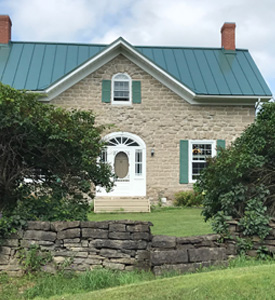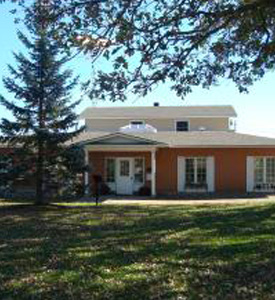The Planning Department establishes policies, regulations and standards guiding land use and development in the Township of Montague and ensures compliance with provincial building regulations.
The Planning Department deals with all matters that fall under the Planning Act including plans of subdivisions, consents, official plan amendments, zoning by-law amendments, minor variances, and site plan control.
Download a Land-Use Planning and Development Pamphlet
Download a Planning/Development Application
Applications and Fees
|
ITEM/DESCRIPTION |
COST |
|
Zoning Certificate |
$50.00 |
|
Consent Application – Township Fee |
$400.00 for the first lot $100.00 for subsequent lots on same landholding |
|
Minor Variance Application (Committee of Adjustment) |
$750.00 fee |
|
Site Plan Agreement |
$500.00 fee + $250.00 deposit |
|
Site Plan Amendment |
$250.00 fee + $250.00 deposit |
|
Development Agreement |
$250.00 fee + $250.00 deposit |
|
Subdivision Agreement |
$2,500.00 fee + $500.00 deposit |
|
Rezoning Applications |
$750.00 fee |
|
Official Plan Amendment Applications |
$1,000.00 fee |
| Lifting of Holding Provision | $300.00 fee |
| Deeming By-law | $300.00 fee |
| Other Staff time for technical document review and on-site attendance | $50.00/hour |
| Additional assistance prior to complete application submission beyond initial inquiry and one pre-consultation | $50.00/hour |
Cash-in-Lieu of Parkland Fees
| Development Type | Cash-in-Lieu Amount |
| Commercial or Industrial land uses | 2% of appraised value |
| Residential and all other land uses, including Institutional | 5% of appraised value |
| For each new undeveloped lot created through Consent (severed or retained) upon which a residential use would be permitted | $1,000.00 per lot |
NOTE:
The Fees listed above are non-refundable, administrative charges for all planning applications and services.
Deposits are utilized to pay for all charges incurred by the Township on behalf of the applicant (ie, document registration, advertising). The balance of any deposits held by the Township will be returned to the applicant upon completion of the file, without interest, less any expenses incurred.
If the amount of the deposit held by the Township is deemed insufficient to cover the incurred costs, the applicant will be required to reimburse the Township, or the amount owing will be collected by the Township pursuant to the remedies available to it by law.
For more information on:
The Planning Act sets out the ground rules for land use planning in Ontario and describes how land uses may be controlled, and who may control them. The County of Lanark has the authority to approve consents (severances), plans of subdivision and condominium, condominium exemptions and part-lot control by-laws. For further information visit the following link, Lanark County Planning Department, or contact the County of Lanark at 613-267-4200 and ask for the Planning Department. Under the Planning Act, the Minister of Municipal Affairs and Housing may, from time to time, issue provincial statements on matters related to land use planning that are of provincial interest. The Provincial Planning Statement, 2024 (PPS, 2024) contains clear, overall policy directions on matters of provincial interest related to land use planning and development.
What is the Planning Act?
The Act is legislation passed by your elected provincial representatives to:
What is the Province's role?
What is the role of the Township?
What is the role of the County of Lanark?
What is the Provincial Planning Statement?
The Montague Township Official Plan is a legal document under the Planning Act that came into force and effect on December 13. 2011. The Official Plan is a strategic planning document which guides the growth, development, and land use changes in Montague Township for the next 20 years and beyond. The Official Plan (OP) determines how the Township will manage issues such as: agriculture, growth, housing, employment, aggregates and natural heritage conservation. The Official Plan is required to be consistent with the provincial requirements for land use planning as expressed in the Provincial Policy Statement 2020. There is also a requirement for the Township’s Official Plan to conform to the Lanark County Sustainable Communities Official Plan. An Official Plan: For a copy of our May 2023 Office Consolidation, please click here. For Schedule A, please click here. For Schedule B, please click here. For Schedule C, please click here.
A zoning by-law controls the use of land in your community. It states exactly: An official plan sets out the Township’s general policies for future land use. Zoning by-laws put the plan into effect and provide for its day-to-day administration. They contain specific requirements that are legally enforceable. Construction or new development that does not comply with a zoning by-law is not allowed, and the Township will refuse to issue a building permit.
Thinking about or are in the process of purchasing property in Montague Township? A Zoning Compliance Report provides you with: A zoning compliance report must be requested in writing with the following information: Zoning compliance reports cost $50.00 per assessment roll number. Payment must be received with the written request.
The owner of a property or any person authorized in writing by the owner who is unable to comply with the provisions of the Zoning By-Law may apply to the Committee of Adjustment by means of an “Application for Minor Variance” for relief from the Zoning By-Law. Minor Variances may be granted provided that, in the opinion of the Committee, the request is minor in nature, is desirable for the appropriate development or use of the land, building or structure and if in the opinion of the Committee, the general intent and purpose of the Zoning By-Law and the Official Plan are maintained. A minor variance does not change a zoning by-law. It simply excuses you from a specific requirement of the by-law and allows you to obtain a building permit. The Committee of Adjustment is composed of 3 members, who are appointed by the Council of the Township of Montague. The authority of the Committee of Adjustment is set out in the Planning Act. If you wish to apply to the Committee of Adjustment you should obtain and complete the application form. The application form outlines the requirements for submitting an application for minor variance. The requirements include a site plan or survey which will indicate the location of the property, the setbacks of all buildings or structures on the property and sufficient information to clearly identify the variance required. If you are acting as an agent for the purposes of the application, a letter of authorization is required from the registered owner of the property. Applications are also available at the Municipal Office. The application fee is outlined on the application form, payable at the time an application is submitted. Fees may be paid by cash, cheque or debit. If the fee is being paid by cheque, the cheque must be made payable to: “Township of Montague”. The application is circulated to other Township Departments and various agencies for their comments. Notice of all Committee of Adjustment applications is also sent, by mail, to all property owners within 60.0 meters (200 ft.) of the subject property. Following the circulation period, all correspondence will be reviewed and the Township Planner will determine if the proposal meets all requirements and prepare a report for the Committee of Adjustment. The Committee of Adjustment will then decide to approve, approve with conditions, or not approve the application. At the hearing the Township Planner or Planning Assistant will present the Report to the Committee. Presentations may also be made by any other interested parties in support of or in objection to your application. The Committee considers all presentations for and against your proposal and renders a verbal decision in the presence of all interested parties at the time of the Public Meeting. An approval of your application may be subject to such conditions and/or restrictions as the Committee deems appropriate. If an individual wishes to receive a copy of a Committee decision their request must be in writing. A written decision from the Committee will be sent to the applicant, agent and all persons that requested a copy of the decision by Certified Mail within ten days from the date of the hearing. At the end of the twenty-day appeal period, if there has been no appeal filed, the decision will become final and binding. The decision of the Committee of Adjustment is subject to appeal within twenty days from the date that the decision is signed. During the appeal period any person having an interest in the application may file an appeal of the Committee’s decision to the Local Planning Appeal Tribunal. The notice of appeal is filed with the Secretary-Treasurer of the Committee of Adjustment. The notice of appeal must be in writing and outline the reasons for the objection. A cheque for the required fee, payable to “The Minister of Finance”, must be included with a notice of appeal. The notice of appeal, the fee and all required documents will be forwarded by The Secretary-Treasurer to the Ontario Land Tribunal.
The Site Plan review and approval process is a legislative tool under the Planning Act. Site Plan Control is a development review process which evaluates the layout of site features, (buildings, parking areas, landscaping, etc), but not the interior spaces of the proposed structures. It seeks to mitigate the impact of development. Site plan control by-laws are not zoning by-laws. They are used to establish areas where site plan control will be applied over and above those set out in the zoning by-laws. These areas must be described in the official plan. Site plan controls are used to ensure that: As a condition of site plan approval, the Township may require the owner to provide land for road widening. The application form outlines the requirements for submitting an application for Site Plan Control. If you are acting as an agent for the purposes of the application, a letter of authorization is required from the registered owner of the property. Applications are also available at the Municipal Office. The application fee is outlined on the application form, payable at the time an application is submitted. Fees may be paid by cash, cheque or debit. If the fee is being paid by cheque, the cheque must be made payable to: “Township of Montague”. The application is circulated to other Township Departments and various agencies for their comments. All correspondence will be reviewed and the Township Planner will prepare a report for the Committee of the Whole. The Committee will then make a decision. The decision does not become final until it is approved by Council. Council will then adopt a By-Law approving the necessary Site Plan Control Agreement that lists the various conditions for the specific development. Once Council has passed the necessary By-Law approving the Site Plan Agreement both the Township and the Applicant sign the agreement. The legal agreement is then registered on title and binding on subsequent owners of the property. Once all of the provisions of the agreement have been met, the Township will issue a Certificate of Compliance confirming that all provisions of the Agreement have been complied with in full. Only the Applicant can appeal the conditions of the Site Plan Control Approval to the Ontario Land Tribunal. The Township takes steps to ensure that the Site Plan Control Agreements are implemented and remain in force until the development is completed. Site Plan Control Agreements are registered on title and remain in effect for as long as the development is in place.
All land severances are governed by the Lanark County Land Division Committee (LCLDC). Applications for severances can be picked up at the Township Office, but must be submitted to the LCLDC in Perth. The Official Plan for the Township states that there can be a maximum of three severances from a property without a plan of subdivision. For a link to the County of Lanark's webpage, please click here.
Source Water Protection Drinking water source protection safeguards public health by protecting the municipal drinking water supply from contaminants like sewage, fuel and chemicals. If water sources become contaminated, treatment can be much more expensive or even impossible. Ontario’s Clean Water Act provides the legislative framework for Source Protection in Ontario. It ensures communities prevent contamination of their municipal drinking water supplies by developing collaborative, watershed-based source protection plans that are locally driven and based on science. In the Township of Montague, the Mississippi-Rideau Source Protection Plan applies and has been in effect since 2015. The Mississippi-Rideau Source Protection Plan contains policies to protect our current and future drinking water supplies from threats of contamination or overuse. Municipal drinking water can come from groundwater wells that draw water from underground aquifers, or surface water, which draws water from lakes and rivers. Source protection policies related to significant drinking water threats only apply in designated drinking water protection zones. These vulnerable areas are also known as Intake Protection Zones (IPZ) and Wellhead Protection Areas (WHPA). Different policies apply to different parts of the IPZ or WHPA because certain areas are more vulnerable to contamination. Do I live in a drinking water protection zone? Use this interactive map to determine if your home or business is located in a drinking water protection zone. If you live in a drinking water protection zone, you’re encouraged to take easy steps to protect drinking water for yourself and your neighbours. Depending on your property’s location and land uses, you may also be required to follow a prescribed risk management plan for your property or subject to additional protective restrictions. Learn more here: https://www.mrsourcewater.ca/en/risk-management-and-environmental-compliance/risk-management-plans How were Drinking Water Protection Zones determined? Drinking water protection zones have been determined through a series of technical studies completed by the Mississippi-Rideau Source Protection Region. These studies identified municipal drinking water sources, areas vulnerable to contamination and what the potential sources of contamination might be. The results of those technical studies were used to direct source protection policy decisions and determine the areas where policies apply. What are drinking water threats? Under certain circumstance, the following can be significant threats to our drinking water, as prescribed under the Clean Water Act, 2006: How does the Source Protection Plan address threats to drinking water? The goal of the Source Protection Plan is to work with property owners to manage or eliminate activities that are or could become significant threats to drinking water sources. In most cases, property owners can reduce the risk and allow the activity to continue with mitigation in place. The Clean Water Act provides several tools to accomplish this, such as education and outreach, risk management plans and changes to municipal land use planning documents. Often a combination of tools works best. Who is responsible for implementing and enforcing the Source Protection Plan? Provincial Ministries, Conservation Authorities, and Municipalities all have different responsibilities for implementing Source Protection Plans. Municipalities have the primary responsibility to implement and enforce policies locally to manage drinking water threats and to implement planning and restricted land use policies. Who can I contact for more information? Marika Livingston, Project Manager Mississippi-Rideau Source Protection Region (Rideau Valley Conservation Authority Office)What is an Official Plan?
Why do Municipalities need an Official Plan?
Zoning By-Law
Zoning By-Law Documents
Zoning Compliance Report
Property Information Sheet
Minor Variance
Minor Variance Applications
How Much will it Cost?
What Happens Once the Application is Submitted?
What Happens at the Meeting?
What Happens After the Meeting?
Appeal Provisions
Site Plan Control
Site Plan Control Applications
How Much will it Cost?
What Happens Once the Application is Submitted?
What Happens After the Meeting?
Appeal Provisions
Implementation and Enforcement of Site Plan Control Applications
Consent Applications Scheduled for Land Division Committee






